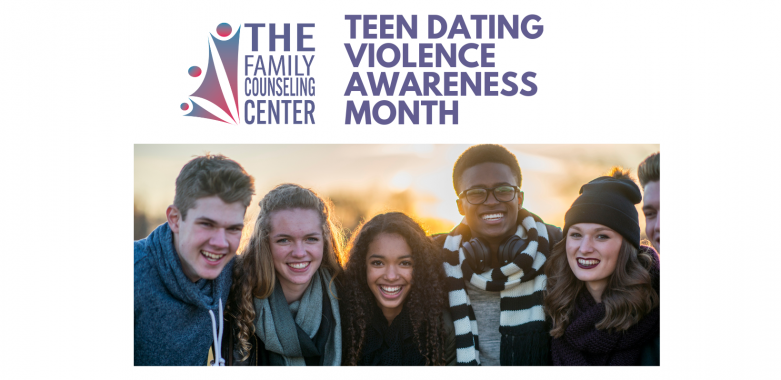The Family Counseling Center Promotes February as Teen Dating Violence Awareness Month
The Family Counseling Center of Fulton County and the Domestic Violence Program of Fulton County, are promoting the nationally recognized Teen Dating Violence Awareness Month over the course of February. Created by Congress in 2010, Teen Dating Violence Awareness Month is meant to promote and educate teens and young adults about what healthy relationships look like, the warning signs of abuse, and encourage dialogue between adults and the children in their lives about respect in personal relationships.
Throughout the month, the Domestic Violence Program, housed at Family Counseling Center, will be conducting outreach and education presentations to local schools. “We offer presentations to area schools throughout the year,” says Amanda Anderson, Director of the Domestic Violence Program of Fulton County. “When we present, we focus on a few things. First, that abuse is much more than physical hitting. Second, we give strong examples of what is and is not a healthy relationship.”
Relationship abuse can include physical abuse, emotional abuse, digital abuse, and financial abuse. It is recognized that one in three teens report one or more types of abuse.
- Physical Abuse – hitting, sexual coercion, and other physical acts
- Emotional Abuse – often the first type of abuse someone experiences including gaslighting, demeaning language, and dismissal of youth’s feelings
- Digital Abuse – a growing type of abuse amongst youth including tracking apps, social media stalking, and more
- Financial Abuse – a lesser known type of abuse which includes having one partner responsible for paying for every outing, borrowing money from a partner and not paying back, and encouraging youth to skip class or work in order to spend time with their partner
Parents and the important adults in a youth’s life play a vital role in helping teens begin to navigate and learn what healthy relationships look like. It is important to communicate with teens that healthy relationships include essential elements such as respect, communication, trust, boundaries, honesty, and equality. LoveIsRespect.org, a national nonprofit focused on teen dating violence and the creation of healthy relationships, suggests parents take the following approaches when speaking to teens:
- Give support – be supportive and non-judgmental when discussing relationships with your teens
- Validate, empathize, and create space where your teen feels safe – listen carefully and fully to what your teen is telling you about their relationships
- Accept what they are telling you – believe your teen, even if it is tough to hear
- Focus on behaviors, not the person(s) involved – your teen may be experiencing abuse and feel uncomfortable with what their partner is doing but they may also have deep feelings of love toward their abuser so focusing on the behavior and not the person is important
- Talk about safety in a non-judgmental, supporting way – recognize that leaving the relationship may not end the issue as your teen will have to see their partner at school or in social groups
- Decide together what the next steps are
LoveIsRespect.org provides useful parenting guides here.
“We try to focus on healthy relationships in our talks to teens and school groups,” says Anderson. “Healthy relationships mean that both individuals can communicate fully with one another, treat each other with respect, are trusting and honest, meet one another on equal footing, are able to enjoy personal time away from each other, make mutual choices when necessary, and share economic responsibilities equally.”
To learn more about Teen Dating Violence Awareness month, the warning signs of teen abuse, and more please go to www.loveisrespect.org.
The Domestic Violence Program of Fulton County maintains a 24-hour hotline for those experiencing abuse and seeking help. If you are in an abusive situation, please call 518.725.5300.

